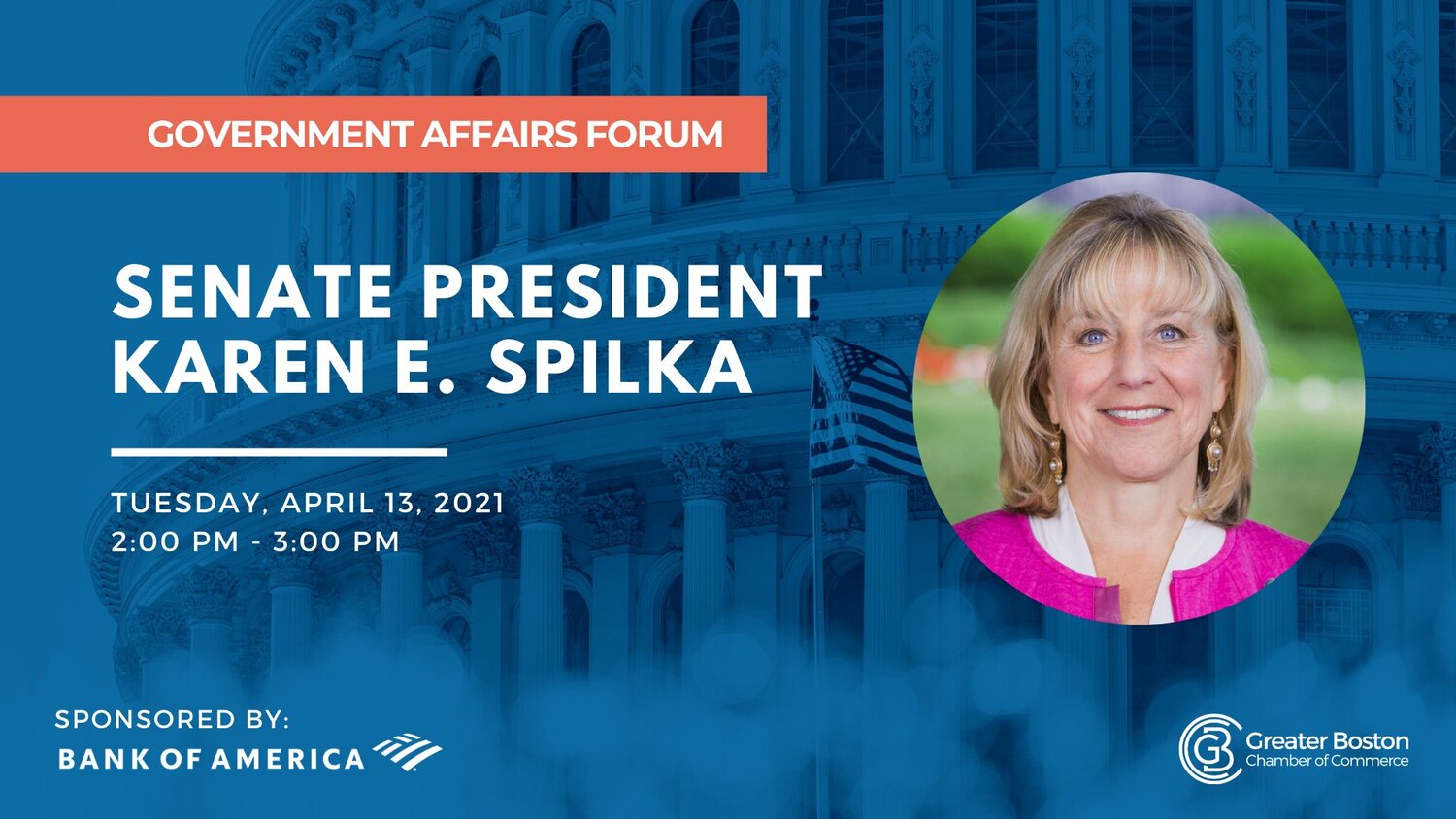An excerpt from Senate President Karen Spilka's remarks to the Greater Boston Chamber of Commerce on Tuesday, April 13, 2021:
"I have been particularly struck by the statistics on the devastating effects COVID-19 has had on women in the workplace. Before the pandemic, women in Massachusetts were participating in the workforce at increasing rates, surpassing the national rate by 2019 – but the pandemic has brought women back to where they were after the 2009 recession. In fact, the percentage of women participating in the U.S. labor market in October 2020 was the lowest since 1988.
It is clear to me that if we wish to have a full and equitable recovery, we must take a close look at the factors that affect women’s employment, at every level and in every sector, and one clear factor that we must address is caregiving. In the same way that we learned to diversify our sectors after the last recession, we are now learning that we must support and strengthen the caregiving sector in Massachusetts so that we can support working families across the Commonwealth.
Almost exactly one year ago today, I appeared before this Chamber, in what was your first ever virtual forum, if you can believe it, and declared that childcare was as important to our infrastructure as roads and bridges in getting people back to work. The struggles of the past year have borne this out, which is why I have pushed the Legislature to begin to address the need for childcare, including providing for emergency childcare for essential workers, increasing rates for early education providers, and dedicating $40 million for a new reserve to cover parent fees for those receiving subsidized childcare. We also established the Early Education and Care Economic Review Commission to review childcare funding and make recommendations on policy changes to expand access.
With the promise of over $500 million in federal funding through the American Rescue Plan, we are well-poised to make more strides in making childcare more accessible and affordable, and I look forward to working with all of you to dedicate our best thinking towards tackling this problem, both in the public and private sectors.
But childcare is just one piece of what many are calling a “caregiving crisis”–a storm that has been brewing on our horizon for a few years, but which COVID-19 has turned into a full-blown tsunami. Many people, mostly women, who work in non-caregiving professions, but are sandwiched between aging parents and growing children, have dropped out of the workforce in alarming numbers to care for those who rely on them, while too many Black and brown women who work in caregiving professions have been crushed by the job losses of the economic downturn, with devastating results for their families and communities. As we all feel the squeeze of this caregiving crisis, is it any surprise that we are facing a mental health crisis as well?
But this is Massachusetts, my friends, and I know we can do better. "
 |
| "a rare opportunity—and a responsibility—to reimagine the path towards what I call “back to better”" |

